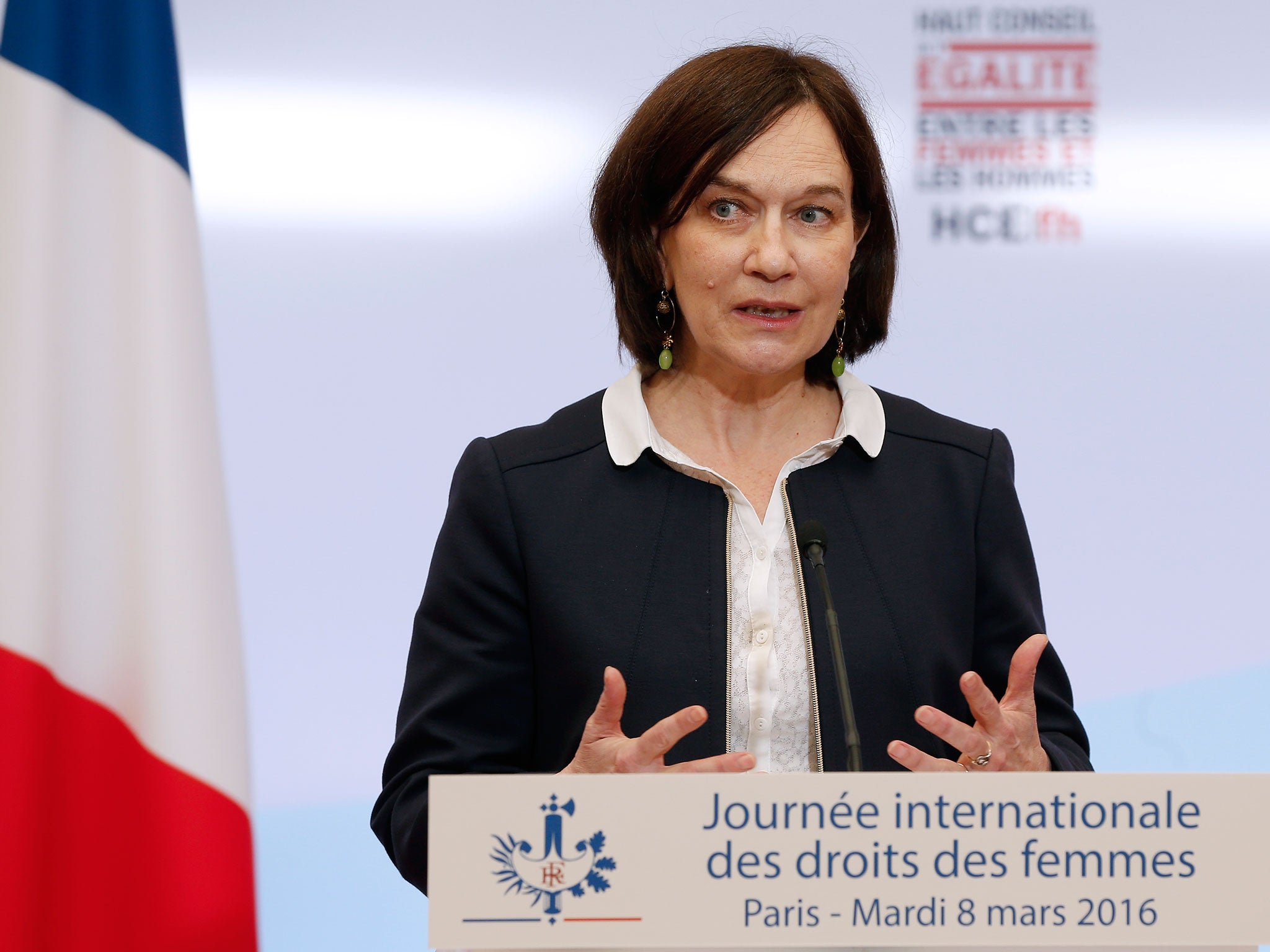French minister Laurence Rossignol compares Muslim women who wear veils to 'negroes in favour of slavery'
Laurence Rossignol says garments such as burkinis 'promote the confinement of women’s bodies'

A French Minister has been criticised after comparing Muslim women who choose to wear veils to “negroes who were in favour of slavery”.
Laurence Rossignol, the country's Minister for Families, Children and Women, described the promotion of Islamic fashion by major brands as “irresponsible”.
But her use of the word "negro" prompted accusations of racism and calls for her resignation.
Earlier this month, Marks and Spencer unveiled their ‘burkini’, which covers all but the wearers’ hands, feet and face, to mixed public reviews in the UK.
Other brands, such as HM, Uniqlo and Dolce and Gabbana have also promoted ‘Islamic’ fashion, with ranges of hijabs and veils in their stores across Europe.
Ms Rossignol says such items “promote the confinement of women’s bodies” and that big brand marketing puts Muslim women in a position where they feel they should be dressing a certain way.
She said there were women who would choose to cover up, but there were also “American negroes who were in favour of slavery”.
The comments caused a social media storm in France, with many calling for her to resign.
A change.org petition urging the French President to reprimand the minister has since received more than 16,000 signatures.
In 2010, France introduced a so-called burka ban, which prevents women from covering their faces in public.
The French government claim face veils present a security risk and also encroach on the freedoms of the women forced to wear them.
The law, which also bans people from covering their faces with balaclavas or hoods, was upheld by the European Court of Human Rights in 2014.
Join our commenting forum
Join thought-provoking conversations, follow other Independent readers and see their replies
Comments